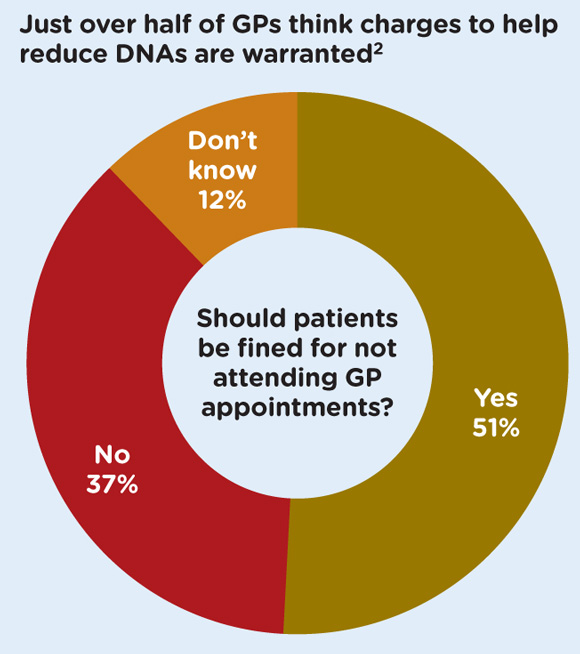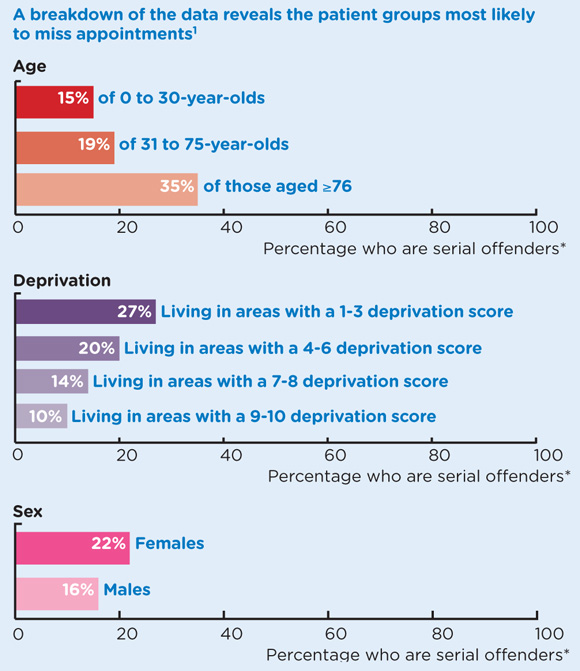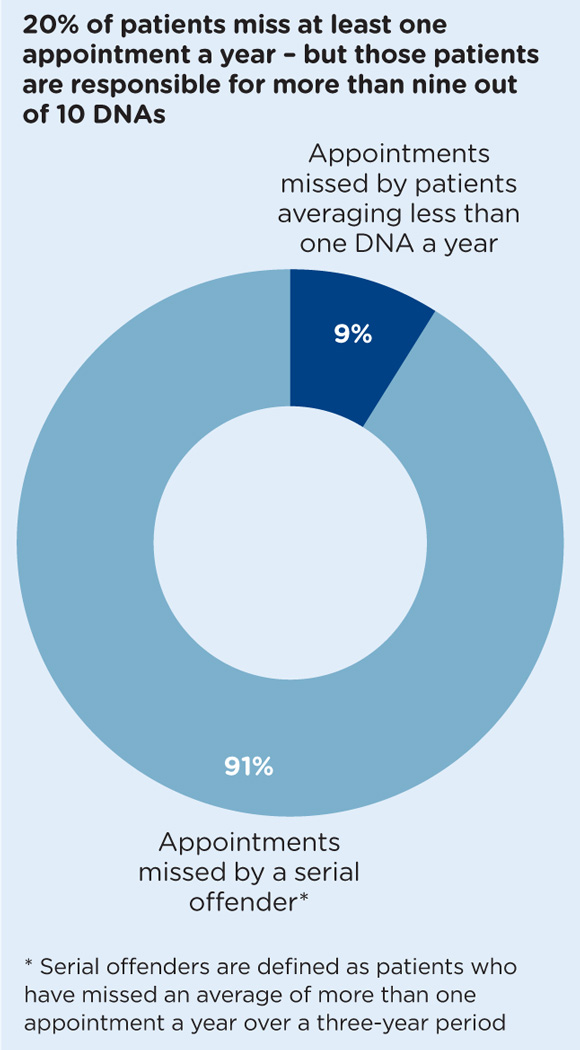Why practices should offer more same-day appointments

Practices with patients at higher risk of serial DNAs should consider selectively offering on-the-day appointments, a new study has concluded.

dnas 3 580px
The study published in The Lancet Public Health looked at the appointment history of 550,083 patients in Scotland over three years and found that only 9% of DNAs were one-off missed appointments, with the majority being missed by serial offenders.
It also found that there were ‘clear differences’ in the characteristics of patients who serially miss appointments, with patients over the age of 75 and those who lived in more deprived areas most likely to miss appointments regularly.
But it also found practices offering on-the-day appointments were less likely to have a high proportion of DNAs.
As a result, they concluded: ‘There might be a case for some practices selectively offering on-the-day appointments for patients at high risk of serial non-attendance.’
The researchers, from the universities of Glasgow, Lancaster and Aberdeen, analysed more than 13 million appointments over three years, and found that 12% were not attended – of which 91% were missed by serial offenders.

dnas 2 580px
They found that, in line with clinicians’ experience, patients in deprived areas are more likely to miss appointments. But they said it was ‘unexpected’ that older people missed more appointments, saying transport issues might be a factor. Women miss more appointments due to the higher number they book, although when researchers adjusted for this, men were more likely to miss appointments.
The study concluded that practices in affluent areas could do more to prepare for serial DNAs. It said: ‘Practices in more affluent areas seem to be more poorly equipped to accommodate patients who repeatedly miss multiple appointments than practices in more deprived areas and could benefit most from similar adaptations to their appointment systems.’
In November 2017, a Pulse survey revealed that just over half of GPs would now be willing to fine patients who miss appointments. In 2015, health secretary Jeremy Hunt said he did not have a problem ‘in principle’ with charging patients for DNAs.

dnas 1 580px
The BMA’s GP Committee chair Dr Richard Vautrey said: ‘Missed appointments do result in valuable time and resources being wasted, but we do need to understand the reasons why this occurs.’
He called for a targeted campaign to enforce ‘the importance of attending booked appointments, as well as the negative impact missing appointments has on other patients’.
The study comes as GP appointments become harder to secure, with the average waiting time in the UK now around two weeks.
Pulse July survey
Take our July 2025 survey to potentially win £1.000 worth of tokens












